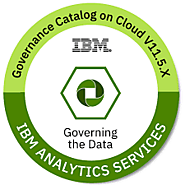-
About
- About Listly
- Community & Support
- Howto
- Chrome Extension
- Bookmarklet
- WordPress Plugin
- Listly Premium
- Privacy
- Terms
- DMCA Copyright
- © 2010-2025 Boomy Labs

 Joe Brooks
Joe Brooks
Listly by Joe Brooks
In the digital age, data is the currency that fuels business growth and innovation. However, the abundance of data can quickly turn into a double-edged sword without proper management and governance. Data governance is essential for organizations to ensure data accuracy, security, and compliance while leveraging its full potential. To accomplish this, businesses need robust data governance tools that enable them to manage, control, and optimize their data assets effectively.

Collibra is a leading data governance platform designed to empower organizations with an end-to-end data governance solution. It enables users to define data policies, track data lineage, and ensure regulatory compliance across all data assets. Collibra's intuitive interface and advanced data cataloging capabilities make it a top choice for businesses seeking enhanced efficiency in data governance.

Informatica Axon offers a comprehensive data governance solution that integrates seamlessly with existing data management tools. This platform provides a centralized repository for data policies, glossaries, and rules, streamlining collaboration between business and IT stakeholders. With its data lineage and impact analysis features, Informatica Axon helps organizations make informed decisions and maintain data quality.

IBM IGC delivers robust data governance capabilities through its data cataloging, data lineage, and data quality features. This tool allows organizations to define business terms, data policies, and compliance rules while enabling a deeper understanding of data relationships and dependencies.

Alation is a data governance platform designed to promote data collaboration and democratization within organizations. Its data cataloging and data lineage capabilities allow users to discover, understand, and trust data assets, leading to enhanced efficiency in data-driven decision-making processes.
